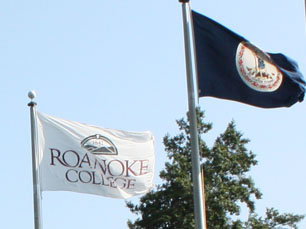 Registered Virginia voters are largely split on Medicaid expansion (46% oppose, 42% favor), but 61 percent oppose potential unilateral action by Governor Terry McAuliffe to expand the program, according to the Roanoke College Poll.
Registered Virginia voters are largely split on Medicaid expansion (46% oppose, 42% favor), but 61 percent oppose potential unilateral action by Governor Terry McAuliffe to expand the program, according to the Roanoke College Poll.
A majority of respondents (54%) think that former Governor Bob McDonnell, whose trial begins next week, did something wrong in his interactions with Jonnie Williams and Star Scientific (20% of respondents think McDonnell did nothing wrong). Opinion regarding the resignation of state Senator Phillip Puckett is split – 23% think he did nothing wrong; 21% think he did something wrong – but a majority were unsure or did not know enough to have an opinion.
Medicaid and McAuliffe
Medicaid expansion and polling on that issue have both been intensely debated. The January Roanoke College Poll also had a question on the topic, but the wording was changed in this survey to more closely reflect the opposing arguments.
A majority of those polled (61%) think McAuliffe should work with the General Assembly to try to expand Medicaid rather than take action on his own. Even 28 percent of those who favor expansion said that McAuliffe should not act alone. Political Independents are opposed to both expansion (46%-37%) and to unilateral action (64%-21%). While self-described moderates favor Medicaid expansion (52%-35%), they are opposed to unilateral action by McAuliffe (55%-31%).
The Governor’s approval rating stands at 38 percent, up one point from January, but disapproval is at 27 percent, up 11 points from January. At the same time, only 43 percent of respondents think the Commonwealth is headed in the right direction, while 39 percent think it is on the wrong track. These numbers are more pessimistic than any in the past 18 months of the RC Poll.
Ethics and elected officials
As mentioned earlier, a majority of those polled think former Gov. McDonnell did something wrong in his dealings with Star Scientific, and the public is split on the resignation of Phillip Puckett. There is a strong consensus, however, that their actions are typical of elected officials (76%) rather than uncommon events (11%).
These events tend to be viewed through partisan lenses. Two-thirds (67%) of Democrats think McDonnell did something wrong, compared to 56 percent of Independents, but 38 percent of Republicans also thought he did something wrong (31% of Republicans said he did nothing wrong). Regarding Puckett’s resignation, Democrats (31%) again were most likely to say he did something wrong, followed by Independents (24%) and Republicans (24%). There were virtually no partisan differences in seeing these events as typical elected official behavior.
The Tea Party in Virginia
Views of the Tea Party (22% agree with the Tea Party; 47% disagree) are largely unchanged since the 2013 election, despite the David Brat primary victory over Eric Cantor. This poll suggests no evidence of a resurgence in popularity of the movement in the Commonwealth.
Analysis
“Medicaid expansion remains a potent and divisive issue,” said Dr. Harry Wilson, director of the Institute for Policy and Opinion Research. “How the governor should respond, however, provides more of a consensus. Virginia voters generally do not want McAuliffe to go it alone. They prefer that he work with the General Assembly.”
“With regard to McDonnell, it seems that opinion is turning against him, although there may be a distinction between thinking he did something wrong and thinking he did something criminal. This poll was focused on the ethics rather than the legality.”
Methodology
Interviewing for The Roanoke College Poll was conducted by The Institute for Policy and Opinion Research at Roanoke College in Salem, Va. between July 14 and July 19, 2014. A total of 556 registered voters in Virginia were interviewed. The sample included both landlines and cellphones and was created so that all cellphone and residential telephone numbers, including unlisted numbers, had a known chance of inclusion. Cellphones constituted 36 percent of the completed interviews.
Questions answered by the entire sample of 556 registered voters are subject to a sampling error of plus or minus approximately 4.2 percent at the 95 percent level of confidence. This means that in 95 out of 100 samples like the one used here, the results obtained should be no more than 4.2 percentage points above or below the figure that would be obtained by interviewing all registered voters in Virginia who have a home telephone or a cellphone. The margin of error is larger for any subsets of the 556 total.
Quotas were used to ensure that different regions of the Commonwealth were proportionately represented. The data were statistically weighted for gender, race and age using the 2013 state exit poll as a benchmark. IPOR does not weight for political party.
A copy of the top line questionnaire and all frequencies may be found on the Roanoke College website.


